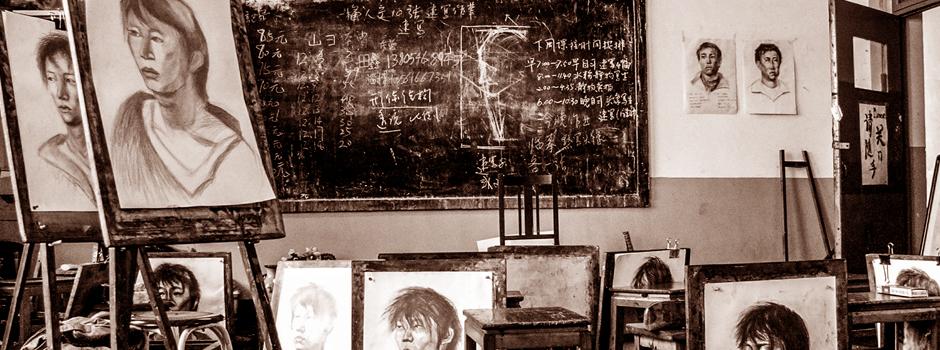For the latest FLSS session on February 23, Professor Lily Chumley offered a critique of creativity based on her decade-long ethnographic study into China’s art school expansion and students’ art practice.
Drawing on three years of fieldwork in Beijing and Shandong province since 2006, Professor Chumley traced the history and the expansion of art academics, programs, and art test prep schools in China’s education reforms.
“A big emphasis of the reform was on nurturing creativity and innovation, which was said to have successfully changed China’s status and the world economy,” Professor Chumley said.
She scrutinized the narratives of creativity through three dimensions: the test-focused art education that is said to suppress creativity, the state institutions and pedagogical forms through which creative individuals are produced, and the aesthetic communities constructed through self-styling. Her findings were included in a book Creativity Class: Art School and Culture Work in Postsocialist China, published last year.
Based on her observation, Professor Chumley argued that creativity is a form of practice performed in a particular social situation instead of “a real, inherent capacity of individuals.”
This semester, in Professor Chumley’s research lab class “Culture, Media and Urban China,” students are required to polish multiple research skills from developing proposals, drafting research plans to conducting fieldwork and collecting data.
“We are teaching students how to do research from start to finish,” she said.



